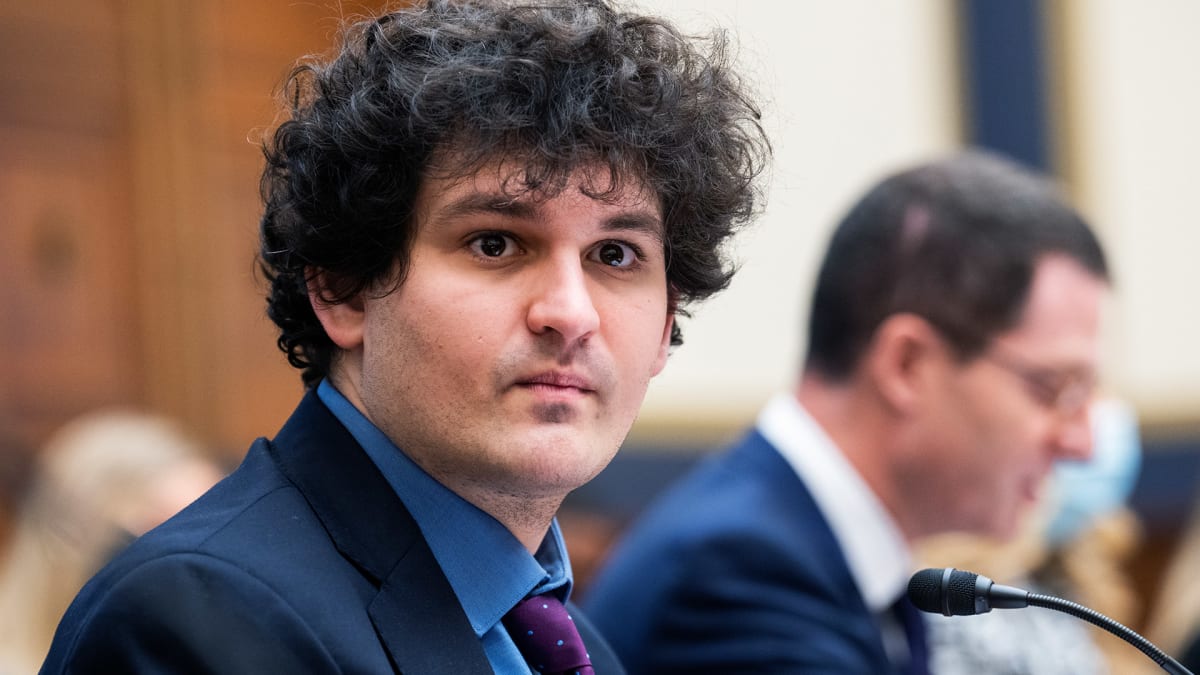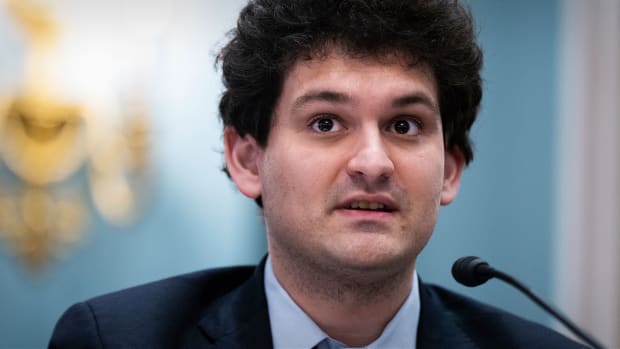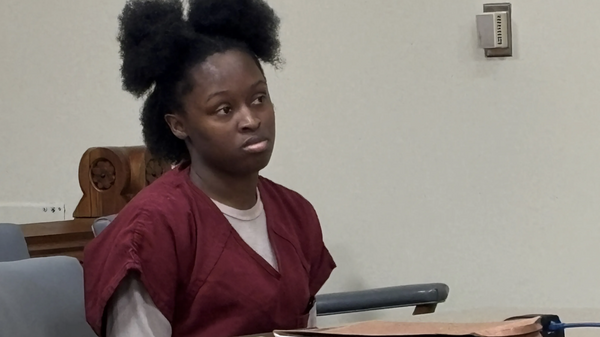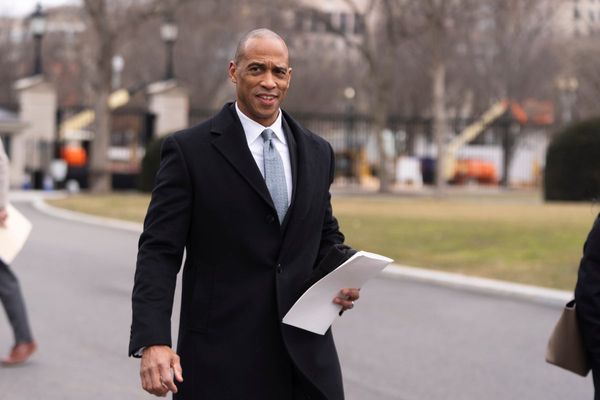
The founder and former CEO of bankrupt cryptocurrency exchange FTX, Sam Bankman-Fried, was accused of reaching out to the general counsel of its U.S. division by the Department of Justice.
The Justice Department seeks to ban Bankman-Fried from communicating with any current or former employees of the crypto exchange unless a lawyer is present and asked a federal judge on Jan. 27 to enforce a ban, federal prosecutors said in a filing.
Prosecutors alleged that Bankman-Fried reached out to a potential witness, a general counsel of the company’s U.S. operation earlier in January, about his pending criminal case. They said the disgraced founder used an encrypted messaging application.
Bankman-Fried, known by the initials SBF in the crypto space, faces several criminal charges after FTX collapsed.
They also allege that he reached out to other current and former employees of FTX and could run afoul of witness tampering.

Tom Williams/CQ-Roll Call, Inc via Getty Images
Judge Asked to Prohibit Signal, Slack Use
The prosecutor also asked the judge to prohibit him from using Signal and Slack, which are both encrypted messaging applications.
When Bankman-Fried ran FTX, he instructed the employees of FTX and Alameda Research, a hedge fund that was also a trading platform, to use both of those platforms and also ensure their messages would delete automatically after 30 days.
The policy of automatically deleting messages has presented a major hurdle to the federal investigation, according to prosecutors.
“Potential witnesses have described relevant and incriminating conversations with the defendant that took place on Slack and Signal that have already been autodeleted because of settings implemented at the defendant’s direction,” prosecutors said in a filing.
Investors and clients lost billions of dollars when FTX imploded and how much of that money is recoverable remains up in the air as John Ray, the liquidator of his crypto empire, seeks to trace their whereabouts.
In December, Bankman-Fried was charged by the Manhattan U.S. attorney’s office of stealing billions of dollars from FTX's customers and misleading its own investors and lenders.
He pleaded not guilty and is on home arrest at the Palo Alto, Calif., house of his parents until his trial starts in October.
Bankman-Fried Reaches Out to General Counsel
Bankman-Fried sent a message on Jan. 15 via Signal message to the general counsel, writing that he “would really love to reconnect and see if there’s a way for us to have a constructive relationship, use each other as resources when possible, or at least vet things with each other,” according to the allegation by prosecutors.
Prosecutors said the message allegedly sent to the general counsel is concerning. They did not name the other employees that Bankman-Fried has been accused of reaching.
“Were the defendant to ‘vet’ his version of relevant events with potential witnesses, that might have the effect of discouraging witnesses from testifying in a manner contrary to the defendant’s narrative,” according to the filing from the Justice Department.
Bankman-Fried faces a series of criminal and civil charges, including alleged fraud.
He was released on bail on Dec. 21 after being extradited from the Bahamas where he lived. He has pleaded not guilty during a hearing in New York on Jan. 3.
FTX and Alameda were the two heads of 30-year-old Bankman-Fried's cryptocurrency empire. The two companies went bankrupt on Nov. 11 because they could no longer meet the massive demands for withdrawals of funds by their customers.
Bankman-Fried resumed speaking on social networks. He tries, as he did during his apology tour at the end of November/beginning of December, to exculpate himself. But his strategy mainly shifts the blame to other people.
He continues to claim that the American subsidiary was solvent at the time of the bankruptcy filing and that there was another option other than bankruptcy.
"Despite its insolvency, and despite processing roughly $5b of withdrawals over its last few days of operation, FTX International retains significant assets – roughly $8b of assets of varying liquidity as of when Mr. Ray took over," he asserted without providing evidence.
"In addition to that, there were numerous potential funding offers – including signed LOIs (letters of intent) post chapter 11 filing totaling over $4b. I believe that, had FTX International been given a few weeks, it could likely have utilized its illiquid assets and equity to raise enough financing to make customers substantially whole."







